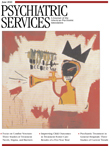Many university campuses struggle with substance use issues among students. Research consistently shows that such problems have long-lasting consequences for individuals and the university as a whole. With significant resources often directed to address problems of binge drinking and illicit substance use on campus, few resources and services target students who are recovering from a substance use disorder. These students face isolation and many unique challenges while pursuing education on college campuses. Students at the University of Michigan School of Social Work recognized an absence of recovery-oriented events and services on campus and used a novel approach to address this problem. They created Students for Recovery (SFR), an initiative that brings together students who are in recovery or involved in recovery-oriented efforts through a wide range of social, recreational, and educational events.
An initial welcome reception, marking the formalization of the group, drew over 175 students, faculty, and university staff, as well as support from community members and businesses. This was followed by a series of social and recreational events, such as a bicycle tour, an arcade event, a Halloween dance, games hosted at local cafes and restaurants, and yoga practice. Educational events offered by the group have included a panel discussion of students in recovery who described their challenges in maintaining sobriety, an information table at the university health fair, and student guest lectures in various classes. In carrying out the educational events, the group has worked to build awareness of the significance of recovery-related issues, to help reduce the stigma of recovery on campus, and to encourage university administrators to increase support for this at-risk group of students.
All events hosted by SFR are free and intended to be highly interactive and engaging to help facilitate the development of supportive social networks among all participants. SFR group members hold weekly meetings to plan and organize events. Members of the group also are engaged in various other activities, such as writing university-based grant proposals to fund the events, building relationships with other student groups and campus units to increase visibility and support, connecting with community businesses and restaurants to receive donations or discounted services, and maintaining an online calendar of events that includes SFR activities and local 12-step meetings. The group relies heavily on using various information and communication technologies for organizing and marketing events (such as text messaging, e-mail, and social networking sites). The group also has a faculty advisor and other university professionals who provide informational resources and technical assistance as needed. Some group members have used this group as a form of service learning by combining their group participation with an individualized learning plan.
Thus far, SFR has not encountered any unexpected problems in relation to relapse or other clinical problems among group members. This may be attributable to many members' having extensive experience in supporting other people who are in recovery. In fact, the group has served as an important resource for making highly individualized and effective referrals to local 12-step meetings and facilitating transportation to those meetings for new or potential members who are in recovery. The group also has discovered many local businesses that are highly supportive of the goals of the group, and this network has helped to expand the recovery-oriented environment.
The group has encountered numerous challenges. The most significant has been the amount of time that group members need to invest in order to secure the necessary financial resources for organizing, marketing, and making events widely accessible to the campus community. These planning efforts take away from opportunities to enjoy and benefit from the events themselves. Moreover, group members volunteer their time in the face of other competing academic demands, as well as individual recovery needs, employment, and family obligations. As with any student group, turnover in membership is high by nature of time-limited academic programs. Thus a critical challenge the group members discuss and attempt to address relates to recruitment and sustainability.
Overall, SFR is an innovative grassroots initiative at a major university that is taking steps toward addressing a long-standing, serious problem. It is important for university administrators to be aware of the challenges that students in recovery face in the broader efforts of dealing with substance use problems on campus. Although student-driven initiatives are part of an effective solution, universities must make resources available to these students in recognition of the clear benefits to their recovery and to the university as a whole.

